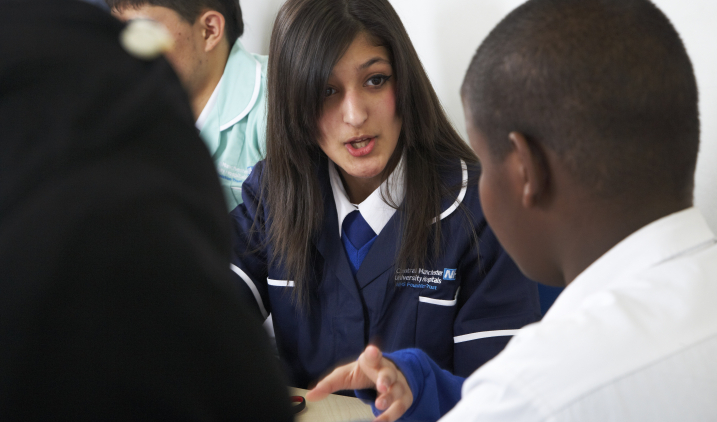Choosing A-levels, T-levels and other post-GCSE options
This page outlines your main choices beyond year 11. Although you have to continue learning, you don’t have to stay in full-time education.
Continuing in some kind of learning is compulsory after year 11 because of an initiative called Raising the Participation Age (RPA). Your main options are:
- to study full time (for example doing A-levels, T-levels or other qualifications)
- to take an apprenticeship
- to find a full time job (not as part of an apprenticeship) where you are able to study or train part time
- to do voluntary work combined with part-time education or training
Find out more about RPA and what this means for you.

Full-time learning
If you want to carry on learning full time, you’ll have a choice about where to study. You could attend:
- a school sixth form, possibly at the school you are already at, or a sixth form college
- a further education college
- another type of training provider
It is important to choose a place where you will be able to do the right programme for you. Also think about whether the school or college has a good reputation for what you want to study.
Choosing A-level or alternative level-3 qualifications
If you decide to stay in full-time learning, you will have to decide which type of course will suit you and what subject or subjects to study.
Apart from AS and A-levels, you could consider equivalent qualifications at level 3, such as T-levels, a BTEC or OCR course. These courses allow you to study a broad area of work, such as health and social care. Some schools and colleges offer other level-3 qualifications, such as the International Baccalaureate.
T-levels are new courses, which will follow GCSEs and will be equivalent to three A-levels. They are two-year courses and have been developed in collaboration with employers and businesses. Find out more about T-levels
When making your choices, think about:
- which subjects you enjoy learning at the moment and whether you are likely to do well in them in the future
- your interests in school and outside
- how you like to learn and be assessed (for example by exams or by assignments)
If you already have a career in health in mind, use Explore roles to find out which subjects will be useful or necessary to start a job or training. For some health careers, you need specific subjects at A-level or equivalent, such as one or more sciences or maths, or a social science. You can also get bite-size information on one or more roles by using the compare roles facility.
You can search for courses in healthcare using our course finder and get general careers advice on the National Careers Service website. Make sure you also ask for advice from your teachers and careers advisers.
In years 10 and 11 you may get the opportunity to do a work experience placement. This will be a chance to find out more about a career area that interests you.
Other full-time courses after year 11
To be accepted for an A-level or other level-3 course, you normally need a number of GCSEs at grades 9-4/A*-C. If you don’t have the necessary entry qualifications, you could resit some GCSEs. This may be possible while doing another course.
There are courses at levels 1 and 2 (especially at further education colleges) that don’t need such high GCSE grades for entry. It’s usually possible to progress from one level of course to another.
Part-time learning
If the prospect of continuing in full-time learning doesn’t appeal to you, your other options are to find a paid job or volunteering opportunity and learn or train on a part-time basis. All of these options are possible in organisations providing NHS healthcare and other health organisations.
It’s possible to carry on learning through a formal apprenticeship programme or through training agreed with your employer or volunteer co-ordinator. Ideally you should have the opportunity to gain nationally recognised qualifications. Make sure that you know exactly what learning opportunities will be provided.
The ways in which you can learn part time include:
- attending special courses in the workplace or training centre
- being instructed on the job
- going to a college or training centre one day a week or for blocks of learning
- taking an evening course
- studying through distance or open learning